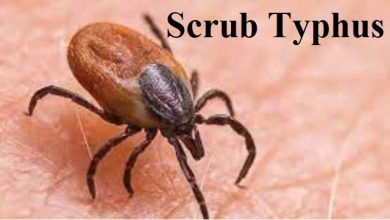Intermittent fasting can slow down brain aging, read study

If you want to help prevent your brain from aging and extend your lifespan, follow dietary patterns like intermittent fasting or limit your calorie intake, a study led by an Indian-origin researcher suggests. Get to know from.
A team of scientists at the Buck Institute for Research on Aging in California has found a role for a gene called OXR1 that is essential for the extension of lifespan seen with dietary restriction and for healthy brain aging.
In the study published in the journal Nature Communications, researchers said that the OXR1 gene is an important brain plasticity factor that protects against aging and neurological diseases.
“When people limit the amount of food they eat, they usually think it might affect their digestive system or fat formation, but not necessarily,” said Kenneth Wilson, a postdoctoral student at the institute. How does it affect the brain?”
“As it turns out, this is a gene that is important in the brain.”
The team additionally demonstrated a detailed cellular mechanism of how dietary restriction can delay aging and slow the progression of neurodegenerative diseases.
The study, conducted in fruit flies and human cells, also identifies potential therapeutic targets to slow aging and age-related neurodegenerative diseases.
“We found a neuron-specific response that mediates the neuroprotection of dietary restriction,” said Professor Pankaj Kapahi of the Buck Institute.
“Strategies such as intermittent fasting or calorie restriction, which limit nutrients, may increase the levels of this gene to mediate its protective effects,” he said.
The team started by scanning about 200 species of flies with different genetic backgrounds. Flies were reared with two different diets, either with normal diet or with dietary restriction, which was only 10 percent of normal nutrition.
They found that loss of OXR1 in humans results in severe neurological defects and premature death. In mice, excess OXR1 improves survival in a model of amyotrophic lateral sclerosis (ALS).
Additionally, a series of intensive tests found that OXR1 affects a complex called retromer, which is a set of proteins essential for the recycling of cellular proteins and lipids.
Retromer dysfunction is associated with age-related neurodegenerative diseases that are protected by dietary restriction, particularly Alzheimer’s and Parkinson’s diseases.
The team found that OXR1 preserves retromer function and is essential for neuronal function, healthy brain aging, and the extension of lifespan seen with dietary restriction.
“Diet is affecting this gene. By eating less, you’re actually increasing this mechanism of properly sorting proteins in your cells, because your cells are increasing the expression of OXR1,” Wilson said.





